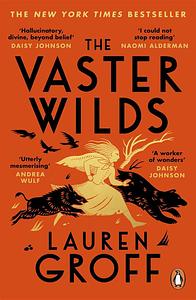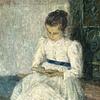Take a photo of a barcode or cover
I already knew I was going to love this. I LOVE Lauren Groff, her writing is so lyrical and poetic and this story was so gripping. I love (wo)man v. nature stories so muchhh
Maybe will pick this up another time (as it was recommended to me and I like the prose), but I’m not in the mood for all the “wet hot shits” in this book right now 🤢
challenging
emotional
inspiring
sad
tense
medium-paced
Plot or Character Driven:
Character
Strong character development:
Yes
Loveable characters:
Yes
Diverse cast of characters:
No
Flaws of characters a main focus:
No
dark
emotional
reflective
sad
slow-paced
There’s some really beautifully written prose, and intriguing struggles. I was more interested in all of the backstory then the forward moving plot. there really seems to be a lack of purpose. Surviving just to survive. And then slowly fade out. This aspect was just not for me. Maybe I’m old fashioned (likely), but I really want there to be some (even small) reason for the suffering in a novel. It doesn’t have to be wrapped up prettily, but there was just something lacking.
adventurous
dark
emotional
reflective
sad
medium-paced
Plot or Character Driven:
Character
Interesting but unfulfilling. The choice to write in a pseudo-Elizabethan cadence ultimately undermines the novel: the vast middle is full of shifts in register and tone, old-timey language but very modern short sentences. It's not unusual for voicey books to lose their voice in the vast middle, but it is annoying.
Similarly, this is technically an omniscient third person POV, but there are moments of authorial anxiety that break the flow of narration, most noticeably when the protagonist (who is a Jamestown famine runaway) invents anti-colonialism in her mind while starting to die of smallpox. Omniscient narrator, step in! This is clumsy writing.
The protagonist's religiosity adds a lot to the text. It would add more had Groff taken the time to make her point of view more truly Puritan. There's a lot of stuff in this book around man vs nature, man within nature, etc., that are jarringly modern in their conception of man, nature, God, and so on. This is interesting since the ending is a kind of orgasmic wave of Unitarian Universalism. This book has something to say about the settler's mind, pathology, sins, and holiness, but it is undermined by historical and linguistic imprecision.
And, finally, the choice to make one of the protagonist's mental preoccupations "the child Bess", a teenager with the mind of a toddler, who is first an object of pity, then of awe, then of horror - a girl who exists to be a mirror away from which the settler's conscience turns, a metaphor and a parable and a doll and an angel - is ableist. There is no other word for it. Lauren Groff thanks her sensitivity readers in the novel's afterward. What a fascinating invention of industry these nameless helpers are.
Similarly, this is technically an omniscient third person POV, but there are moments of authorial anxiety that break the flow of narration, most noticeably when the protagonist (who is a Jamestown famine runaway) invents anti-colonialism in her mind while starting to die of smallpox. Omniscient narrator, step in! This is clumsy writing.
The protagonist's religiosity adds a lot to the text. It would add more had Groff taken the time to make her point of view more truly Puritan. There's a lot of stuff in this book around man vs nature, man within nature, etc., that are jarringly modern in their conception of man, nature, God, and so on. This is interesting since the ending is a kind of orgasmic wave of Unitarian Universalism. This book has something to say about the settler's mind, pathology, sins, and holiness, but it is undermined by historical and linguistic imprecision.
And, finally, the choice to make one of the protagonist's mental preoccupations "the child Bess", a teenager with the mind of a toddler, who is first an object of pity, then of awe, then of horror - a girl who exists to be a mirror away from which the settler's conscience turns, a metaphor and a parable and a doll and an angel - is ableist. There is no other word for it. Lauren Groff thanks her sensitivity readers in the novel's afterward. What a fascinating invention of industry these nameless helpers are.
challenging
sad
slow-paced
If choosing the bear was a book. I think this is really pretty writing, but it didn’t say much. It really drags on switching between running and feeling sick and then running.
I think the actual plot would have done better as a short story.
I think the actual plot would have done better as a short story.
She’s a beautiful writer, but this story did not do it for me.
Beautifully written, a 4 for the prose as I found myself rereading sentences some were so good. The story unfortunately was a bore. Never surprised or excited me - it was one dimensional and ended where (I assume) you’d expect - I’d give the story 2 stars






